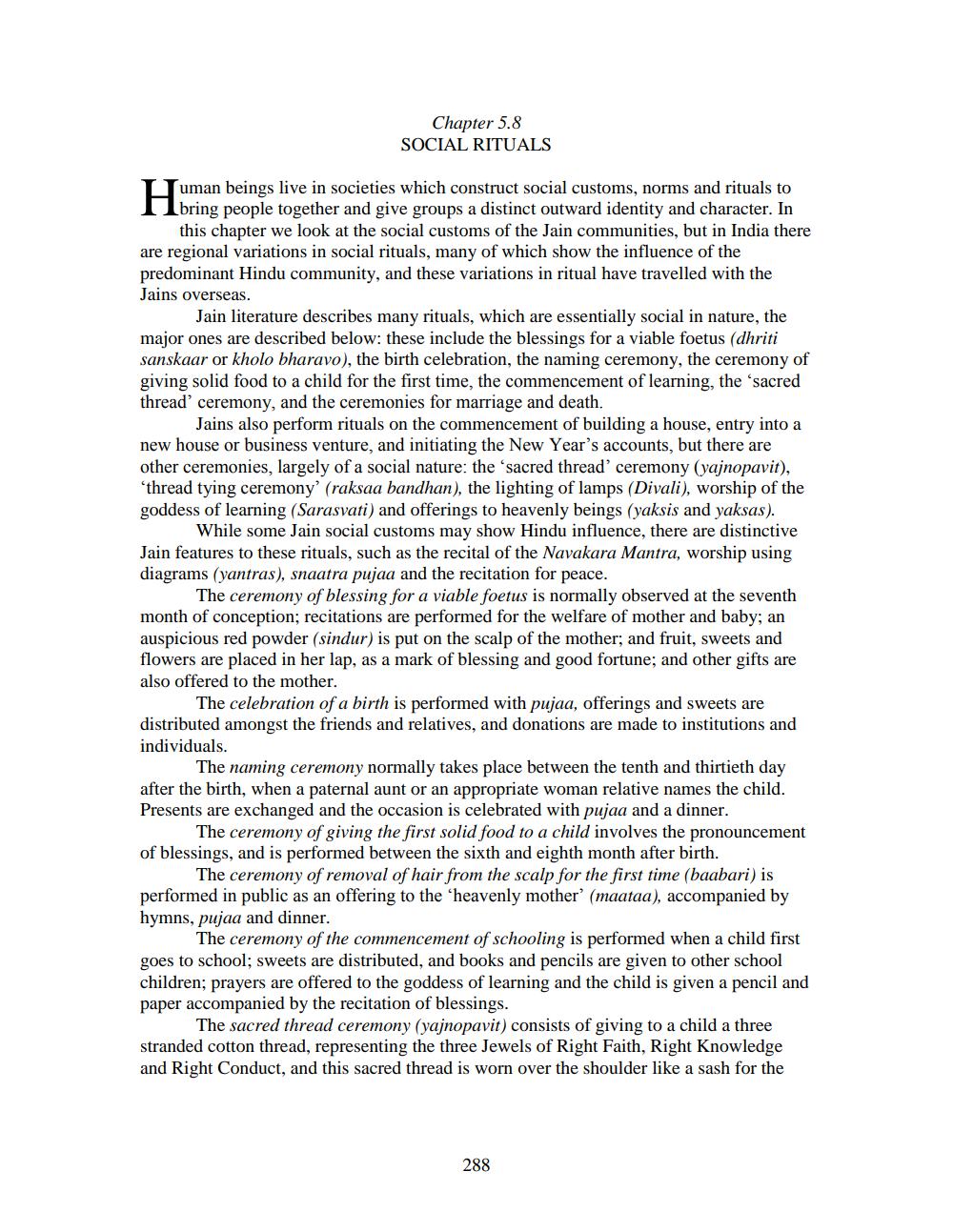________________
Chapter 5.8 SOCIAL RITUALS
uman beings live in societies which construct social customs, norms and rituals to 1 bring people together and give groups a distinct outward identity and character. In
this chapter we look at the social customs of the Jain communities, but in India there are regional variations in social rituals, many of which show the influence of the predominant Hindu community, and these variations in ritual have travelled with the Jains overseas.
Jain literature describes many rituals, which are essentially social in nature, the major ones are described below: these include the blessings for a viable foetus (dhriti sanskaar or kholo bharavo), the birth celebration, the naming ceremony, the ceremony of giving solid food to a child for the first time, the commencement of learning, the 'sacred thread' ceremony, and the ceremonies for marriage and death.
Jains also perform rituals on the commencement of building a house, entry into a new house or business venture, and initiating the New Year's accounts, but there are other ceremonies, largely of a social nature: the 'sacred thread' ceremony (yajnopavit),
thread tying ceremony' (raksaa bandhan), the lighting of lamps (Divali), worship of the goddess of learning (Sarasvati) and offerings to heavenly beings (yaksis and yaksas).
While some Jain social customs may show Hindu influence, there are distinctive Jain features to these rituals, such as the recital of the Navakara Mantra, worship using diagrams (yantras), snaatra pujaa and the recitation for peace.
The ceremony of blessing for a viable foetus is normally observed at the seventh month of conception; recitations are performed for the welfare of mother and baby; an auspicious red powder (sindur) is put on the scalp of the mother; and fruit, sweets and flowers are placed in her lap, as a mark of blessing and good fortune; and other gifts are also offered to the mother.
The celebration of a birth is performed with pujaa, offerings and sweets are distributed amongst the friends and relatives, and donations are made to institutions and individuals.
The naming ceremony normally takes place between the tenth and thirtieth day after the birth, when a paternal aunt or an appropriate woman relative names the child. Presents are exchanged and the occasion is celebrated with pujaa and a dinner.
The ceremony of giving the first solid food to a child involves the pronouncement of blessings, and is performed between the sixth and eighth month after birth.
The ceremony of removal of hair from the scalp for the first time (baabari) is performed in public as an offering to the heavenly mother' (maataa), accompanied by hymns, pujaa and dinner.
The ceremony of the commencement of schooling is performed when a child first goes to school; sweets are distributed, and books and pencils are given to other school children; prayers are offered to the goddess of learning and the child is given a pencil and paper accompanied by the recitation of blessings.
The sacred thread ceremony (yajnopavit) consists of giving to a child a three stranded cotton thread, representing the three Jewels of Right Faith, Right Knowledge and Right Conduct, and this sacred thread is worn over the shoulder like a sash for the
288




